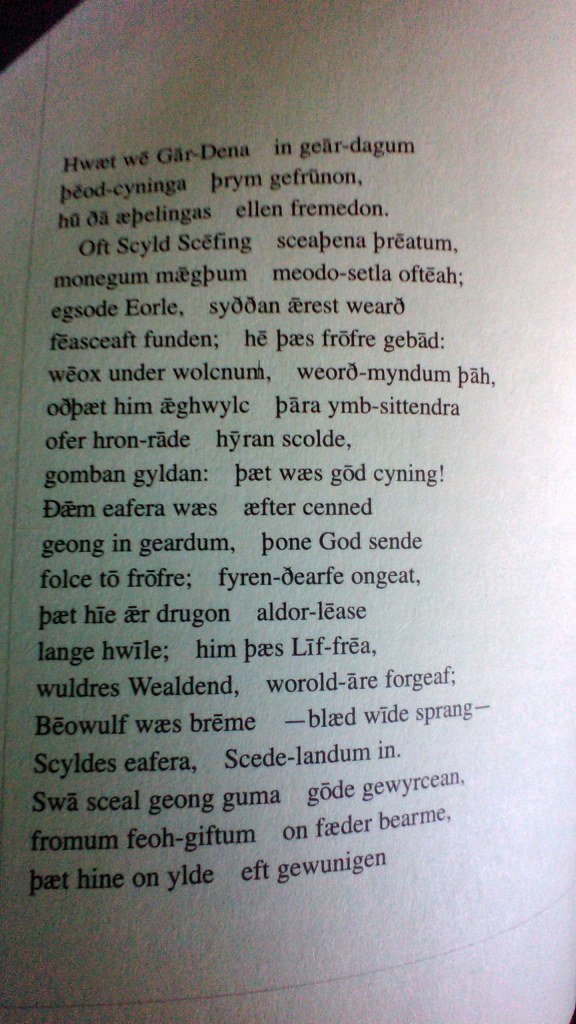What even is English, anyway? “A language,” say those unimpressed by my attempts to sound profound. “A West-Germanic language of considerable Romance influence,” says the linguist. “A really dumb language,” says the linguistic novice who resents his native tongue’s inconsistencies, unaware of its rich history.
The common denominator above is that it is a language. But what is a language? Sure, Xidnaf made a video asking that question but you might have never heard of Xidnaf (and I want to fix that). And I want to offer my own experience and perspective.
A linguist (or an amateur language enthusiast like myself) can easily identify which of their friends are polyglots and which only speak one language. There are as many tells as there are monoglots. Here are a few from my own experience.
“How can diversity of language be a good thing?” – Said the speaker of the international mosaic language.
“It looks like Arabic.” – Said of the D’ni Script, subjective and understandable.
“I don’t know how to read Old English.” – Said of Shakespeare who did not write in Old English. Said by a student of theatre, curiously. By the way, each of these people is brilliant in their field. Anything I said about sociology or film would sound extremely stupid to them, I’m sure.
I find that last example particularly interesting because, despite Shakespeare’s works being written in Early Modern English and not Old English, it’s probably still true. He doesn’t know how to read Old English and neither do I!

Beowulf – Seamus Heaney’s Edition
What even is this?

The Wanderer – 1917 Library Discard Bin Edition
Oft him an…What?
“Wait, you’re telling me that that’s English?” Yup. So how is ‘Oft him anhaga are gebideth’ the same language as what you’re reading now? If you don’t already know the history, it’s hard to see how Old and Modern English are the same language. So why is that English while other languages aren’t? How do you draw those borders? I don’t know myself and the jury seems to be out on that, but let me submit this for consideration:

The Aeneid – Trans. Gavin Douglas, Modern Spelling (Blue because that’s how my phone camera makes me feel)
Parts of it make sense, right? Some of it looks like familiar English, some of it looks like English spelled wrong, and some of it is just bizarre. This is Scots! Is it a dialect? Is it a language? Who knows! But it demonstrates a common phenomenon – dialect continuums, when you have a series of dialects that change from region to region, mutually intelligible (understandable) with their neighbors but not with their neighbor’s neighbor’s neighbors.
Here’s one of my favourite examples of Scots, taken from the Wikipedia page on Scots in Scots.

Yeirhunder? … Year hunder? …Century! Hundred years! Delightful! We can deduce from sound and context what this word means even though we’ve never seen it before. ‘Aunshint’ looks completely alien until we say it out loud and hear ‘Ancient’.
While English has loads of pidgins, creoles, patois, and dialects to consider, we see this phenomenon more often (at least, more obviously) in romance languages. Occitan is a beautiful and sadly obscure language that blends aspects of French and Spanish and throws in some of its own idiosyncrasies straight from Latin. Catalan is a more popular neighbor to Occitan. If you speak Castilian Spanish or French, check out this comparison of the Lord’s Prayer in romance dialects.

Source? I’ve lost it.
Sanctifié, Santifique, Santificat, Santificado. Père, Paire, Pare, Padre. Ciel, Cèl, Cel, Cielo. French and Spanish are not mutually intelligible, especially when spoken and not just written. The differences in sounds further obscure what was already very different on paper. But there are shades of these languages that blend into each other and create something new.
No language is an island. Max Weinreich once said “A language is a dialect with an army and fleet.” I could go on for pages and pages with further examples, but all I want to leave you with for now is that Scots and Occitan are awesome and language is so much more dynamic than we often realize.
I encourage everyone to learn another language, but failing that you can at least learn some different kinds of English. There are plenty more where that came from.
(If you’re a french speaker, I recommend this video by youtuber Linguisticae on Dialect Continuums.)
Appendix: Aaron’s Terrible Theory of Mind
I generally assume that anything I know is already known by pretty much everyone. This belongs to a series of self-belittling attitudes I have towards myself. Having articulated this attitude, it occurs to me that it probably isn’t true.
So far I’ve only written things on this blog that are very new to me, such as some poems, a poem analysis, and a terrible song I wrote as a poem analysis. I was subconsciously refusing to write anything that wasn’t fresh to me because I assumed that everyone had probably figured it out already. Now I’m going to try just sharing things that I enjoy or am interested in, whether they’re fresh out of the oven or stale bodies of interest such as Scots. If I assume everyone already knows everything, I’ll never get to share anything with anyone.
So if you’re an expert with five doctorates and you already know everything about language, literature, religion, the decline of our moral constitution through pocket monsters, or anything else I’ll end up writing about, I just want to say I’M SO SORRY!
(I am only a little bit sorry)